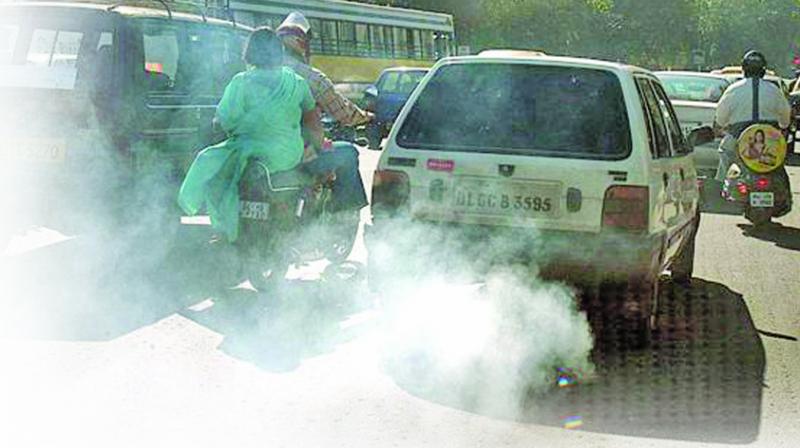
Supreme Court Bans the Sale of BS-III Vehicles from April 1: Know About It
30 March 2017 4:44 AM GMT
On 29 March 2017, the Supreme Court announced a ban on the sale and registration of Bharat Stage (BS) – III emission norm-compliant vehicles from April 1, when BS IV emission norms will be mandated. The direction was in support of public wellbeing, saying that the health of millions was more important than commercial interests.
The ruling was implemented because of a plea by the EPCA (Environment Pollution Control Authority), which petitioned that only BS-IV vehicles should be available for sale in the market. EPCA, which is an autonomous body appointed by Supreme Court to advise the Government on ecological issues, claimed that the objective of cleaner fuel technology could not be achieved if older vehicles continued to flood the market.
Source: asianage
What are BS vehicles?
Loss to Automobile Manufacturers
This ban could cause a loss of about Rs. 12,000 crore to auto-manufacturers, as they are currently holding a stock of 8,24,275 vehicles. This stock includes 96,724 commercial vehicles, 6,71,308 two-wheelers, 40,048 three-wheelers and 16,198 cars. India will hence move towards the implementation of more efficient and stringent BS-IV norms from April 1.
The appeal of automobile companies for additional time to dispose of BS-III vehicles was rejected. A Bench of justice, Madan B Lokur and Justice, Deepak Gupta said, “The number of such vehicles may be small compared to the overall number of vehicles in the country (19-crore) but the health of the people is far, far more important than the commercial interests of the manufacturers.”
The court that had previously passed various orders to check pollution levels claimed that the manufacturers were aware that they would be required to manufacture BS-IV vehicles from 1st April, but failed to sufficient take pro-active steps. In fact, the EPCA reported that it had already given advance information to manufacturers to ensure all inventories were exhausted “so the country takes advantage of BS-IV fuel which will be available from April 1”.
The Centre also argued that the auto manufacturers were earlier allowed to dispose of their inventory in 2005 and 2010 when new emission norms were introduced, hence, claiming that manufacturing vehicles with old technology should be banned but not the sale of existing stocks. However, the court dismissed this argument, in line with EPCA’s report that BS IV vehicles had significantly lower particulate emissions than its previous version.
Source: stz
Expected Reduction in Pollution
Carbon particulate matter is a major air pollutant, causing the difference in both the versions of technology. BS-III vehicles produce 2.30 gram of carbon monoxide per kg of fuel as compared to the 1 gram per kg in BS-IV vehicles. Hence, reportedly, the transition to BS-IV vehicles could cause a considerable drop in particulate matter emissions. For example, new trucks could cause 80% drop in emissions while cars would result in 50% drop in emissions. Likewise, EPCA reports, hydrocarbon and nitrogen oxide emissions, which are a major concern for two-wheelers, could reduce between 41% and 80%, depending on the size of the engine.
The ruling will now have to be abided by automobile manufacturers as well as fuel companies. The Solicitor General informed the court that the BS-IV fuel would be available across the country from April 1. Vinod K Dasari, President of the SIAM (Society of Indian Automobile Manufacturers) stated that the industry would follow the order. He further said that the industry had been prepared with BS-IV manufacturing since 2010, but the sale of these vehicles was not possible due to lack of availability of BS-IV fuel previously.
Future Plans
A deadline of 2020 has been established for India to transition towards BS-V1 norms, skipping the stage V. According to Hindustan Times, this leap of technology upgrade will result in vehicles becoming pricier – petrol cars by Rs 20,000 to Rs 25,000 and diesel cars could cost up to Rs 1 Lakh or more.
The Logical Indian hopes that the ruling will bring down environmental costs of pollution for a better lifestyle of the community, abiding by the umbrella of “Swachh Bharat”.
 All section
All section















